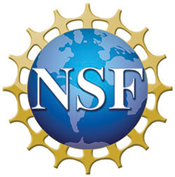 A team of four Fordham professors has been awarded a National Science Foundation (NSF) grant of more than $1 million to fund the Robert Noyce Teacher Scholarship program.
A team of four Fordham professors has been awarded a National Science Foundation (NSF) grant of more than $1 million to fund the Robert Noyce Teacher Scholarship program.
The program is designed to attract and encourage talented undergraduate science, technology, engineering, and mathematics (STEM) majors and professionals to become teachers of secondary mathematics in high-need public schools.
The team includes the principal investigator, Usha Kotelawala, Ph.D., assistant professor of mathematics education at Fordham’s Graduate School of Education (GSE); and co-principal investigators Robert Graham, Ed.D., clinical associate professor of education, GSE; Melkana Brakalova-Trevithick, Ph.D., associate professor of mathematics and chair of the Department of Mathematics at Fordham College at Rose Hill (FCRH); and Janusz Golec, Ph.D., associate professor of mathematics, FCRH.
The NSF Noyce Scholarship Program will enable GSE, in collaboration with the FCRH mathematics department and the New York City public schools under the Fordham Partnership Support Organization (PSO), to increase its impact in training, induction, and support of new teachers in high-need public schools in the metropolitan area. The Noyce Teacher Scholarship Program will further expand the partnership between the GSE and Fordham’s mathematics department.
The five-year grant, totaling more than $1 million, provides funds for three cohorts of six graduate students each to pursue a Master of Science in Teaching degree at GSE and to teach middle and high school mathematics. Each cohort will take classes over a period of two years, including 12 courses at GSE and two courses in the mathematics department. The students will be trained through a clinically rich, field-based teacher training program that uses a model of the Japanese lesson-study practice adapted for teacher education in the New York City public schools, and which was developed by Kotelawala.
“This intensive and structured approach to planning lessons involves collaborative planning, observed presentation of the lesson to actual classes of students, and revision of the lesson based on the observers’ critique and the teachers’ own perceptions of the lesson’s strengths and weaknesses,” said Kotelawala.
Upon graduating, the Noyce scholars will be obligated to teach in high-need schools for at least four years. During the first two years, the scholars will participate in continuing lesson studies and additional workshops.
“Noyce scholars continue to interact with the program during their difficult first two years of teaching, helping them to remain in the classroom despite conditions that drive many teachers away from the profession,” Kotelawala said.
“High-need schools struggle in retaining strong mathematics teachers. The pressures and struggles that teachers face—especially during their first two years—are great. Collaboration with peers can lead to both support for teachers and better teaching.
“Overall, this program can become a model for teacher preparation while serving the broader need of providing qualified teachers with high mastery of their content to the high-need classrooms of New York City,” Kotelawala said.
